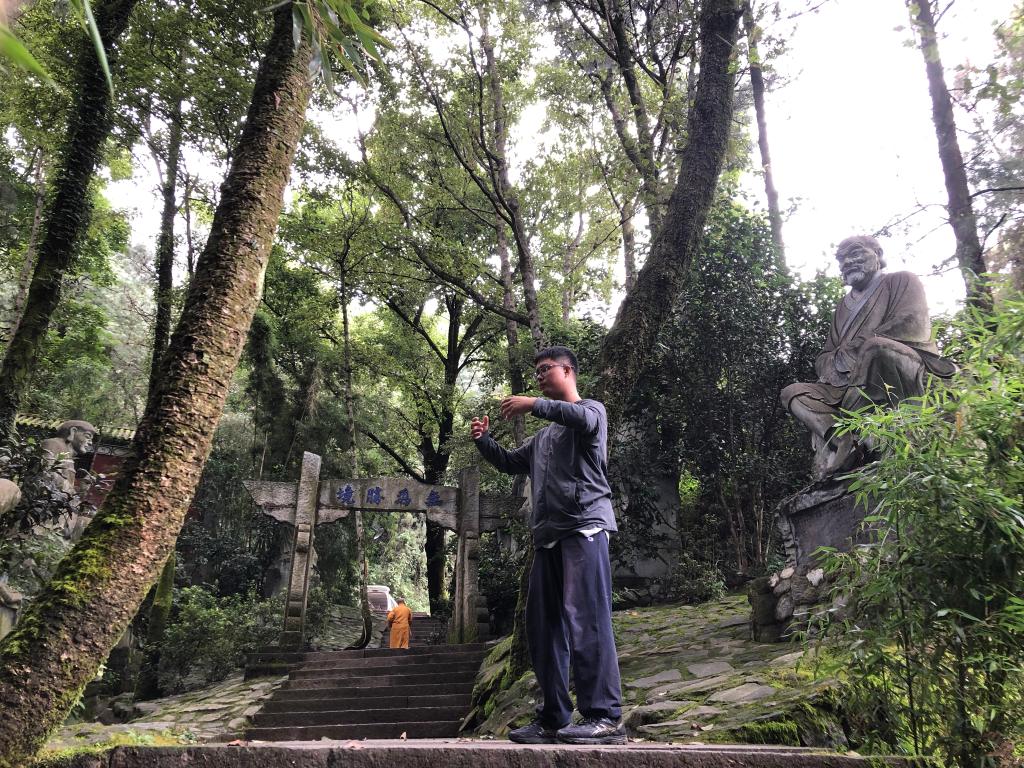




- BRNN
- BRI News
- BRNN News
- Database
Official Documents Polices and Regulations
Inter-government Documents International Cooperation BRI Countries
Business Guide Economic Data BRI Data
Trade
Investment Projects Latest projects
Cases - Content Pool
Long seen as exercises for older adults, Baduanjin, a traditional Chinese aerobic exercise, and Tai Chi, a centuries-old martial art, are now winning over young people and adding fresh variety to modern fitness regimens.
Finding focus through Baduanjin
From early morning airport lounges to quiet forests, from urban rentals to the foot of snow-capped mountains, one woman can be found gently moving to upbeat music in comfortable clothing practicing Baduanjin. For Jiang Xi, a post-90s fashion designer, this has become a daily ritual. She shares her fitness journey on social media, where her calm, relaxed videos have become very popular.
Jiang Xi first started Baduanjin under the guidance of her older brother Jiang Nan, a graduate of the Wushu Department at Beijing Sport University in Beijing. Under his guidance, Jiang Xi began practicing Baduanjin three years ago.

Jiang Nan plays Baduanjin at Wuwei Temple in Dali, SW China's Yunnan Province. (Photo/Xinhua)
"At first, I posted videos just to stay motivated. I never expected so many people would join me," she said. Jiang Xi has drawn tens of thousands of followers with her minimalist, comfortable style and natural, calming content.
Baduanjin, with a history of over 800 years, has long been popular among the elderly. In recent years, more young people have taken to traditional workouts like Baduanjin and Wuqinxi. Wuqinxi, which translates to "Five-Animal Exercises," is a series of physical movements that imitate the actions of five animals: the tiger, deer, bear, monkey (ape) and bird (crane).
On video platform Bilibili, videos of Baduanjin released by the General Administration of Sport of China have racked up more than 10 million views.
"Baduanjin is simple, low-cost, and doesn't require much space. It has become a favorite sport among young people. It's not just a workout, it's a way to focus on yourself and find balance," Jiang Xi said.
Tai Chi becomes a campus favorite
Chai Yunlong, a teacher from the Department of Physical Education, Peking University, carefully explains and demonstrates Tai Chi moves as students follow along. Chai won the championship in the 12th World Wushu Championships in 2013.
In recent years, Tai Chi classes have become increasingly popular, with spots quickly filling each semester. "Tai Chi helps young people build strength and improve their mood. It calms the mind and nurtures emotional well-being," said Chai.
With a strong martial arts background and years of experience, Chai's classes are both accessible and engaging. He also teaches health exercises and practical self-defense. "Through Tai Chi, students pick up practical skills that they'll carry with them for life," he said.
"It wasn't until I took Chai's class that I realized how much depth Tai Chi holds," said Su Yu, an undergraduate at the School of Foreign Languages, Peking University.
At Peking University, Tai Chi is woven into campus life through required courses, workshops, and international summer programs, while student clubs, competitions, and sports festivals make the scene even more dynamic.
Wang Jiahang, a PhD student at the School of Marxism, Peking University, took a Tai Chi class four years ago and still finds it invaluable. "Tai Chi isn't just a physical practice that teaches discipline through movement, it's also a form of cultural nourishment. It reflects core values like balance and the idea of overcoming strength with gentleness."

Tel:86-10-65363107, 86-10-65368220, 86-10-65363106